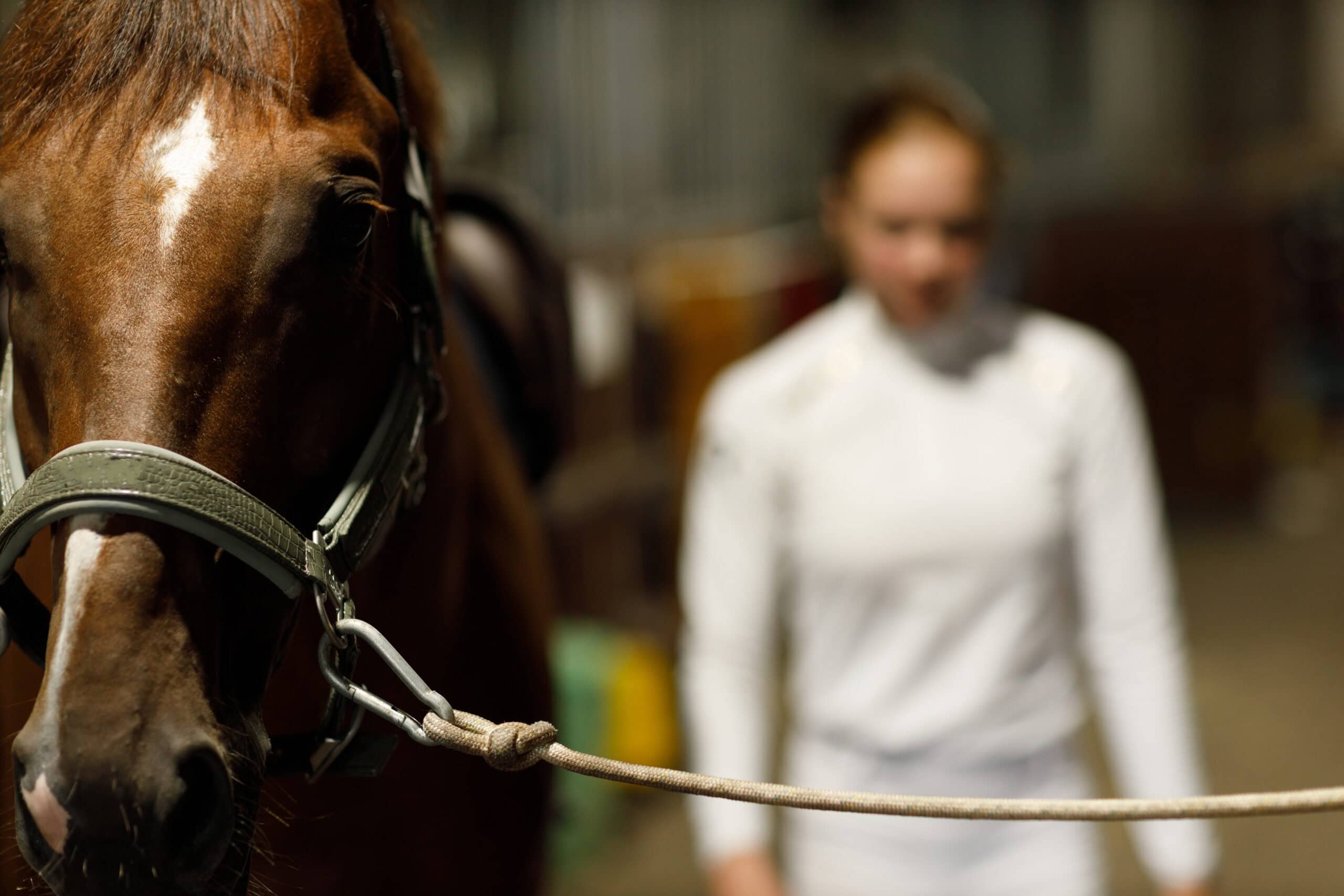Don’t Get Taken for a Ride: Horse Sale Fraud Warning Signs
Are you horse shopping? Look out for these signs of sale fraud when looking for your next equine.


By Rachel Kosmal McCart
Dishonest and unlawful sale practices permeate every level in the horse industry, from $500 horses at the local feedlot auction to private sales of Olympic-level horses. Horse sale fraud is so rampant that shopping for a used car seems practically risk-free by comparison. Although clever fraudsters can dupe even experienced equine professionals, nonhorsey parents buying a horse for their child and first-time horse buyers are particularly vulnerable. Here are some warning signs that a horse deal might be shady.
You’re paying someone other than the horse owner.
Examples: Your trainer tells you to wire the purchase price to their account instead of the seller’s account. Or, the seller’s trainer tells you to make out the cashier’s check to them instead of the seller.
Why this is a potential problem:
- The person receiving the money might not actually pay the owner for the horse or might not pay for it in full.
- The horse’s true purchase price might be much less than you are actually paying. It is fairly common practice for trainers (the seller’s trainer, the buyer’s trainer or both!) to tell the buyer the purchase price is one amount and tell the horse seller the horse sold for a lower amount. One or both trainers then pocket the difference.
- The person receiving the money might be paying kickbacks to other persons involved in the sale, such as the prepurchase exam veterinarian or the “bystander” who told you how great the horse was while you were watching it perform.
You can’t talk directly to the horse owner.
Example: You ask to talk to the horse’s owner, and the seller’s trainer and/or your trainer stonewall you with excuses like, “Oh, they’re out of the country right now.”
Why this is a potential problem:
- The person representing the horse might not be authorized to sell it. Yes, that’s right — the horse owner might have no idea their trainer is offering their horse for sale. Or, the horse might even be stolen!
- The true price of the horse might be less than you know. The seller’s trainer might be planning to pocket the difference or even split it with your trainer.
- The horse owner might tell you facts likely to kill the deal, such as they’ve spent a fortune in vet bills trying to keep the horse sound, or the horse has a behavioral issue.
You don’t get a bill of sale.
Example: You pay for the horse and ask for a bill of sale. You’re told you will get one, but you never receive it.
Why this is a potential problem:
- In some states, such as California, the horse seller is legally required to provide the horse buyer with a bill of sale.
- If there is ever a question about whether you are the legal owner of the horse, a bill of sale can be important evidence in your favor.
- You might be paying more than the horse’s true sale price.
- The person representing the horse might not be authorized to sell it.
- If the horse is registered with a breed or discipline association, such as the United States Equestrian Federation (USEF), you might need a bill of sale to transfer the registration into your name.
You can’t get a vet check.
Example: The horse is at a horse show that is ending very soon. Your trainer tells you unless you buy the horse before the show ends, the seller is going to take it home, and it will cost you a lot of money to have the horse vetted there and then shipped up to you.
Why this is a potential problem:
- The horse might have a lameness issue or other health problem that would be revealed during a prepurchase veterinary examination.
- You won’t have a baseline to show what the horse’s condition was at the time of sale.
- If the horse has a manageable soundness or health issue, you won’t be informed about what that condition is and what is required to manage it. Without management, the horse’s condition will likely decline, perhaps to the point where the horse is no longer suitable for your intended use.
Your only option for a vet check is the seller’s vet.
Example: You ask for a vet check and the seller agrees, but then takes issue with every vet you suggest. The seller urges you to use their vet.
Why this is a potential problem:
- While we’d like to believe all equine veterinarians are honest professionals who put horses’ welfare first and would never be swayed by client loyalties or monetary concerns, that is not always the case. The seller’s vet might not provide you with an independent, fair, thorough examination of the horse.
Your only option for a vet check is the horse show vet.
Example: The horse you are considering purchasing is at a horse show. Your trainer suggests you hire the show vet to do the prepurchase exam and says it will be a lot more expensive to have another vet come out to the show grounds to do it.
Why this is a potential problem:
- Although many show veterinarians are honest professionals willing and capable of providing you with a thorough, independent prepurchase examination, others are not. At some shows, management selects the show veterinarian based in part on pressure from trainers to have a vet at the show who will “pass” a lot of horses.
Someone is telling you not to drug-test the horse.
Example: You mention the prepurchase exam vet will do a blood draw. The seller’s trainer tells you there is no point in doing it, because they had to give the horse a sedative to body-clip it, so the test will come up positive.
Why this is a potential problem:
- The horse might very well have received a sedative but not for the reason you’re being told. Or, the horse might have received other types of medication to mask lameness or behavior problems. Short-acting sedatives, such as acepromazine, do not test for very long. Therefore, it would be a simple matter to wait a few days, then do the prepurchase exam and get a clean blood draw.
Someone is pushing you to make a quick decision.
Example: The seller’s trainer tells you another buyer is waiting to purchase the horse if you don’t, but they want to give you “first dibs.” The seller tells you he or she has someone coming to look at the horse or have the horse vet checked later that day or tomorrow.
Why this is a potential problem:
- Whoever is pushing you to make a quick decision might be trying to avoid giving you time to ask for a vet check, do any due diligence or otherwise exercise good sense.
The horse is advertised as a show horse, but has no show record.
Examples: You are considering purchasing a $75,000 horse your trainer says will be perfect to help your teenage daughter achieve her show goals. When you ask if the horse has a show record, you’re told it does, and the show record is excellent. You ask to see a copy of the show record, but you never get to see it. Or, your trainer says the horse has no show record, but he or she prefers it that way so they can train the horse the way they like.
Why this is a potential problem:
- Some national discipline registries do not require DNA testing, microchipping or other reliable proof of identity.[1] Therefore, if a horse has a less-than-stellar show record, it is fairly common practice to re-register the horse under a different name and falsely represent that it has not been shown at recognized competitions. Sometimes, a single horse or pony is registered multiple times under multiple names.
- Unless you are buying a young horse, if you are paying top dollar for a horse that has never been shown in a recognized competition, you’re probably paying way too much for it.
The horse is at a show, but isn’t competing.
Example: The horse is at a horse show with a trainer who has brought along a string of horses that are showing. The horse you are considering purchasing isn’t being shown, or you’re told it already competed in the show (and did very well) but has finished all its classes.
Why this is a potential problem:
- Although there are some innocent explanations for why a horse might be at a show and not competing, such as the horse is young and just there for the experience of being in a show environment, there are some more nefarious explanations. For example, the horse might be lame, have a behavior issue that becomes obvious in the show ring or otherwise not likely to compete successfully. The horse might also be on medications not permitted by show rules or in amounts exceeding permitted levels.
[1] As of Dec. 1, 2017, USEF requires all hunters, jumpers and equitation horses to have a microchip number recorded with USEF to earn USEF points, and a broader microchip recording requirement went into effect in 2019.
Share this article

Written by: Rachel Kosmal McCart
Rachel Kosmal McCart is a lifelong horsewoman and the founder of Equine Legal Solutions, PC, an equine law firm based in the Portland, Oregon area. Rachel is a member of the New York, California, Oregon and Washington State bars and is admitted to practice before the U.S. District Court for the District of Oregon and the U.S. District Court for the Central District of California. Rachel currently competes in three-day eventing.
Legal Counsel With Horse Sense™
Equine Legal Solutions provides legal services for equine matters in the states of California, New York, Oregon, and Washington.








